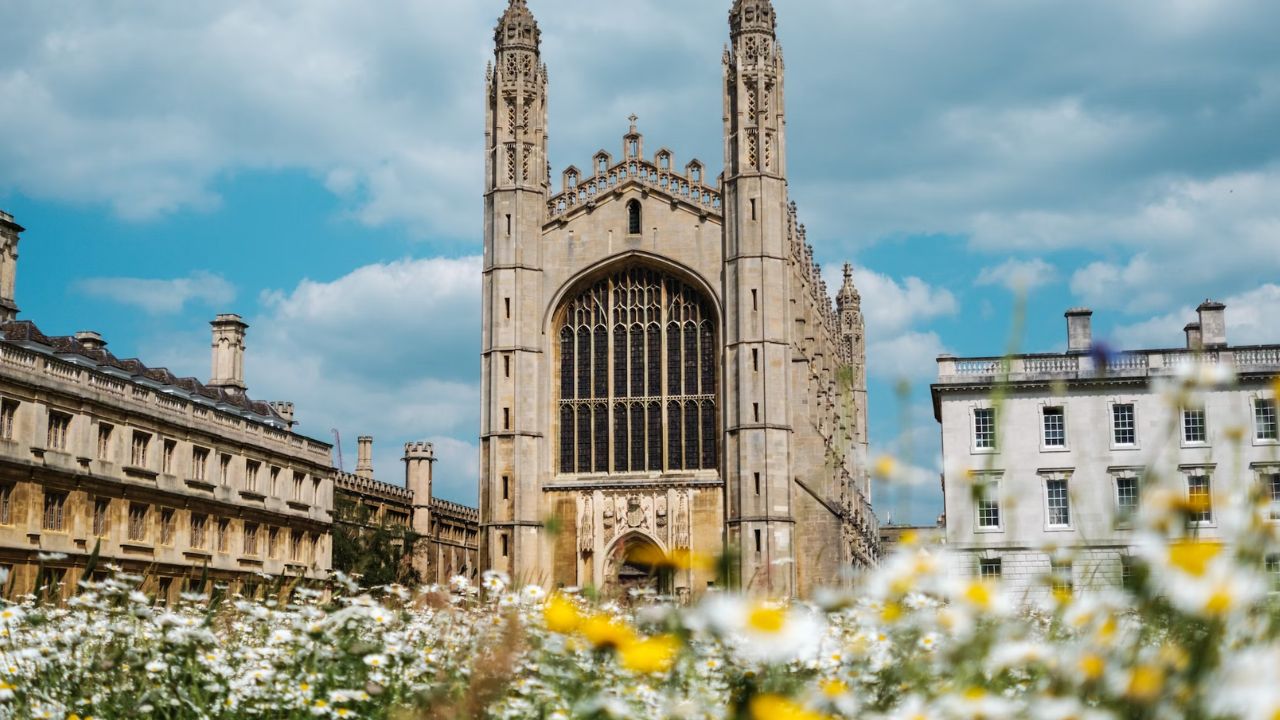Table of Contents
Are you planning to study in the UK and wondering which city to choose? Cambridge and London are two of the most popular destinations for students, but they offer very different experiences. In this blog, we will compare the cost of living in Cambridge vs London, covering aspects such as quality of education, student life, food, average tuition fees, and more. By the end of this blog, you will have a better idea of what to expect from these two cities and which one suits your preferences and budget. Let’s get started!
Cost Of Living Calculator
| Description | Cost (£) |
|---|---|
| Total Cost of Accommodation | 100 |
| Total Cost of Transport | 50 |
| Total Cost of Utilities | 30 |
| Total Cost of Food | 70 |
| Total Estimated Cost | 250 |
What Is The Average Cost Of Living In Cambridge Vs London?
When considering the average cost of living in London vs Cambridge, it’s essential to factor in various aspects that contribute to the overall financial landscape for students. For those seeking off-campus accommodation in Cambridge, the estimated monthly cost stands at £1,464 monthly, slightly surpassing London’s figure of £1,237.
However, if on-campus accommodation is preferred, the monthly expenses in Cambridge rise to around £1,356, while London maintains a comparable rate of £1,390.
Following is the breakdown of the average monthly cost of living in Cambridge vs London for students as of 2023.
| Items | Cost Of Living In Cambridge (Monthly) | Cost Of Living In London (Monthly) |
| Off-Campus Accommodation | £728 | £408 |
| On-Campus Accommodation | £620 | £480 |
| Transportation | £54 | £159 |
| Food Cost | £406 | £406 |
| Utility Cost | £137 | £155 |
| Entertainment | £55 | £44 |
| Groceries | £68 | £155 |
| Clothes | £70 | £69 |
| Total Cost of Living with Off-Campus Accommodation | £1,464 | £1,237 |
| Total Cost of Living with On-Campus Accommodation | £1,356 | £1,390 |
| Annual Cost of Living | £17,568 | £14, 844 |
Student Accommodation In Cambridge Vs London
Different types of housing options: Both cities offer a variety of housing options for students, such as dorms, apartments, shared houses, etc. However, the availability and quality of these options may vary depending on the location, budget, and preferences of the students.
Best Places To Stay
The best places to stay in both cities depend on the proximity to the university, the transport links, the amenities, and the safety of the area. Some of the popular areas for student accommodation in Cambridge are Castle Street, Victoria Road, Histon Road, etc. Some of the popular areas for student accommodation London are Camden, Shoreditch, Stratford, Chelsea, etc.
Average Rent
The rent costs for different housing options vary widely depending on the type, size, location, and facilities of the accommodation. Generally, London is more expensive than Cambridge in terms of rent costs.
The average rent for a student room in Cambridge ranges from £150 to £300 per week, while the average rent for a student room in London ranges from £200 to £500 per week.
To gain a clear idea about accommodation abroad, contact UniAcco. UniAcco is a global student accommodation leader offering premium housing near the top universities in Cambridge and London. With UniAcco, you can easily compare, consult with other students, and select your dream housing, all at affordable prices.
Tuition Fees
In comparing the cost of living in Cambridge vs London, it’s evident that tuition fees for international students differ significantly.
Following is the list of best Cambridge and London Universities along with QS world ranking 2023, average tuition fees and the speciality of each university.
1. University of Cambridge
- QS Ranking: 2nd in the world
- Speciality: Natural sciences, engineering, mathematics, computer science
- Avg. Tuition Fees: £9,250/yr for domestic and EU students, £22,227-£58,038/yr for international students
2. University of Oxford
- QS Ranking: 4th in the world
- Speciality: Humanities, social sciences, medicine, law
- Avg. Tuition Fees: £9,250/yr for domestic and EU students, £25,740-£37,510/yr for international students
3. Imperial College London
- QS Ranking: 8th in the world
- Speciality: Science, engineering, medicine, business
- Avg. Tuition Fees: £9,250/yr for domestic and EU students, £32,000-£38,000/yr for international students
4. University College London (UCL)
- QS Ranking: 10th in the world
- Speciality: Arts and humanities, social sciences, engineering, medicine
- Avg. Tuition Fees: £9,250/yr for domestic and EU students, £19,760-£29,230/yr for international students.
Following is the table answering the average tuition fees, popular courses and scholarship opportunities for students in Cambridge and London.
| Criteria | Cambridge | London |
| Average tuition fees | £5,500 – £59,000/year for a master’s degree | £7,770 – £36,900/year for a master’s degree |
| Popular courses | Natural sciences, engineering, mathematics, computer science | Social sciences, business, law, arts |
| Scholarships availability | GREAT Scholarships, Chevening Scholarships, university scholarships | GREAT Scholarships, Chevening Scholarships, LSE Scholarships |
Food Costs
Food cost is the same in both Cambridge and London, at £406 per month. However, this may vary depending on your lifestyle, preferences, and dietary needs.Both cities offer a variety of cuisines and dishes to suit different tastes and budgets.
Famous Food In Cambridge
Cambridge pudding, a rich dessert made with eggs, cream, and jam; Zhonghua Traditional Snacks, a popular spot for dumplings and soup; and Fitzbillies, a bakery known for its sticky Chelsea buns are some of the famous food in Cambridge that one must try.
Famous Food In London
Fish and chips, a classic British dish of fried fish and potatoes; curry, a spicy dish influenced by Indian and Pakistani immigrants; and afternoon tea, a ritual of tea, sandwiches, scones, and cakes are some of the famous foods in London that one should give it a try.
Transportation Costs
The average transportation cost for students in Cambridge is £54 per month, while in London it is £159 per month.
The main modes of transportation in both cities are buses, trains, taxis and bicycles. Students can also use car-sharing or ride-hailing services such as Uber or Lyft.
Students can get discounts on public transport by using an 18+ Student Oyster photocard in London, which gives them 30% off on Travelcards and Bus & Tram Passes, and 34% off on pay-as-you-go off-peak fares and daily caps for Tube, London Overground, Elizabeth line and most National Rail services in London. They can also use a 16-25 Railcard or 26-30 Railcard to save a third on rail fares across the UK.
Entertainment And Other Expenses
When comparing the cost of living in Cambridge vs London, one factor to consider is the average entertainment cost for students, which is £55 per month in Cambridge and £44 per month in London.
Other expenses for students in Cambridge include food, books, clothes, laundry, toiletries, phone and internet bills, social activities and travel. According to a survey of undergraduate studies, the minimal resources required in Cambridge for a full year (excluding tuition and College fees) are projected to cost around £14,600.
Other expenses for students in London include the same categories as above, plus higher transportation costs. According to a survey of undergraduate studies, the average cost of living in London for students is between £1,237 and £1,309 per month.
Healthcare Facilities

Both cities have access to the National Health Service (NHS), which provides free or low-cost healthcare for UK residents and some international students.
- Cambridge has the Cambridge University Hospitals NHS Foundation Trust, which runs Addenbrooke’s Hospital and the Rosie Hospital, and provides specialist services such as transplantation and rare cancer treatment.
- London has many hospitals and clinics, both public and private, that offer a wide range of medical services. Some of the most renowned ones are St Thomas’ Hospital, Guy’s Hospital, King’s College Hospital and Great Ormond Street Hospital.
Part-time Job Opportunities For Students
Students in Cambridge and London have various options to work part-time while studying, depending on their visa conditions, skills, and preferences. It’s worth noting that these opportunities contribute to managing the cost of living in Cambridge vs London, allowing students to balance their educational expenses with their earnings.
- Students who wish to do part-time jobs while studying in the UK will have to apply for a UK student visa, which allows them to work for 20 hours a week during term time and full-time during holidays.
- Some common part-time jobs for students in the UK are retail, hospitality, tutoring, babysitting, delivery, customer service, data entry and research assistant.
- The average hourly wage for part-time jobs in London is £12.303, while in Cambridge it is £9.504. The minimum wage for workers aged 18-20 is £6.56 and for workers aged 21-24 is £8.36.
Conclusion
Cambridge and London are both renowned for their academic excellence and cultural diversity. However, they also have different advantages and disadvantages when it comes to the cost of living for students. Cambridge is generally cheaper than London, especially in terms of housing and transportation, but it also offers fewer entertainment and career options. London is more expensive, but it also provides more opportunities and variety for students. Therefore, students should weigh their priorities and expectations before choosing between these two cities.
FAQs
1. What is the cost of living in Cambridge vs London?
The cost of living in London is £1,464 per month, while in Cambridge, it amounts to £1,237 on average each month.
2. What are the main factors that affect the cost of living in both cities?
The main factors are housing, transportation, food, entertainment and utilities. Housing and transportation are especially more expensive in London than in Cambridge.
3. How much does a meal cost in Cambridge vs London?
According to Numbeo, a meal in an inexpensive restaurant costs £15 in Cambridge and £20 in London. A meal for two people in a mid-range restaurant costs £50 in Cambridge and £60 in London.
4. How much does a monthly pass for public transport cost in Cambridge vs London?
According to Expatistan, a monthly pass for public transport costs £55 in Cambridge and £150 in London.
5. Is London better than Cambridge?
Comparisons between London and Cambridge rely on personal choices; London has a wide range of options and attractions, but Cambridge has a famous academic setting and a charming history.
Thank you for reading about the “Cost Of Living In Cambridge Vs London.” If you’re interested in exploring more articles on related topics, we recommend checking out the below articles:











0 Comments